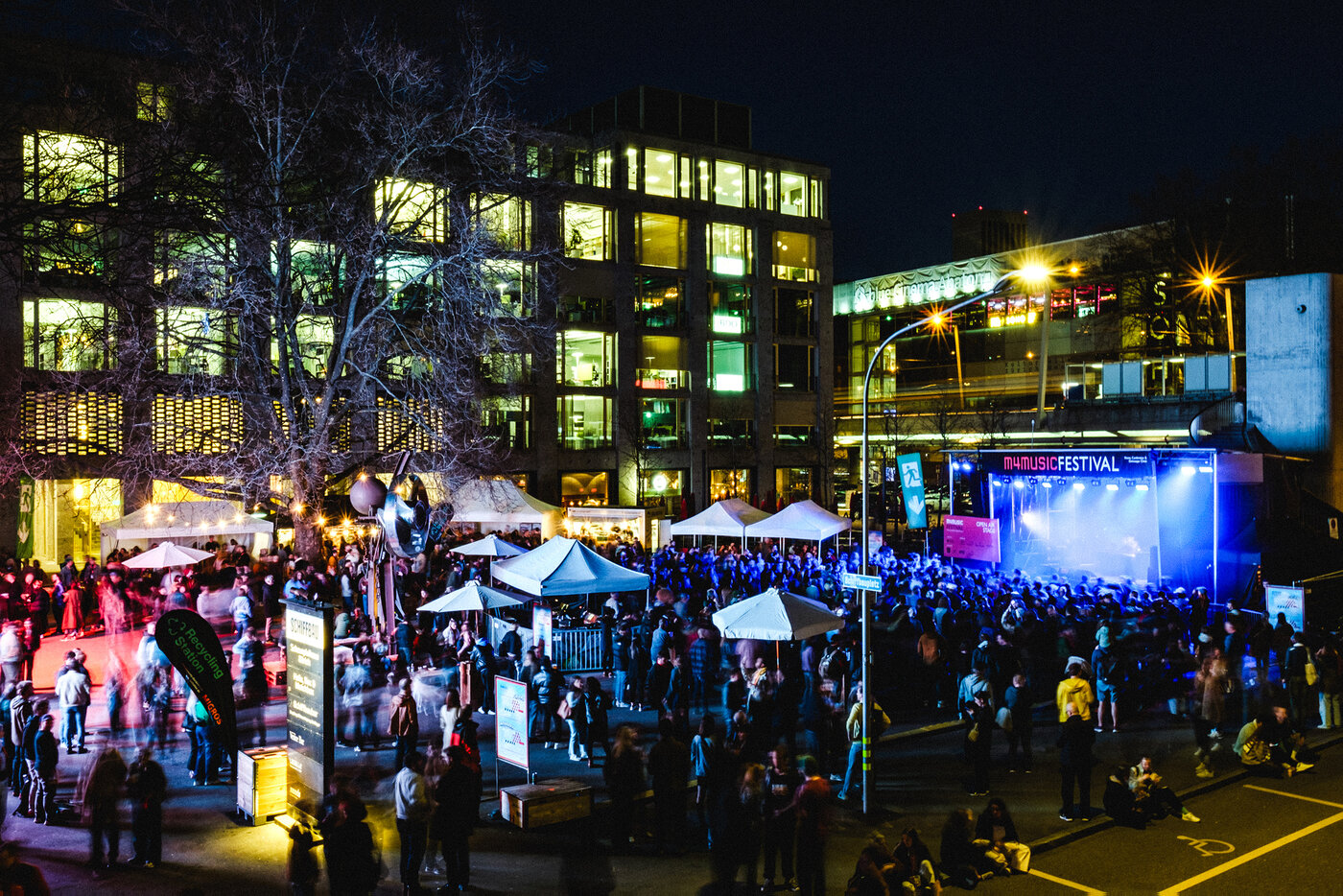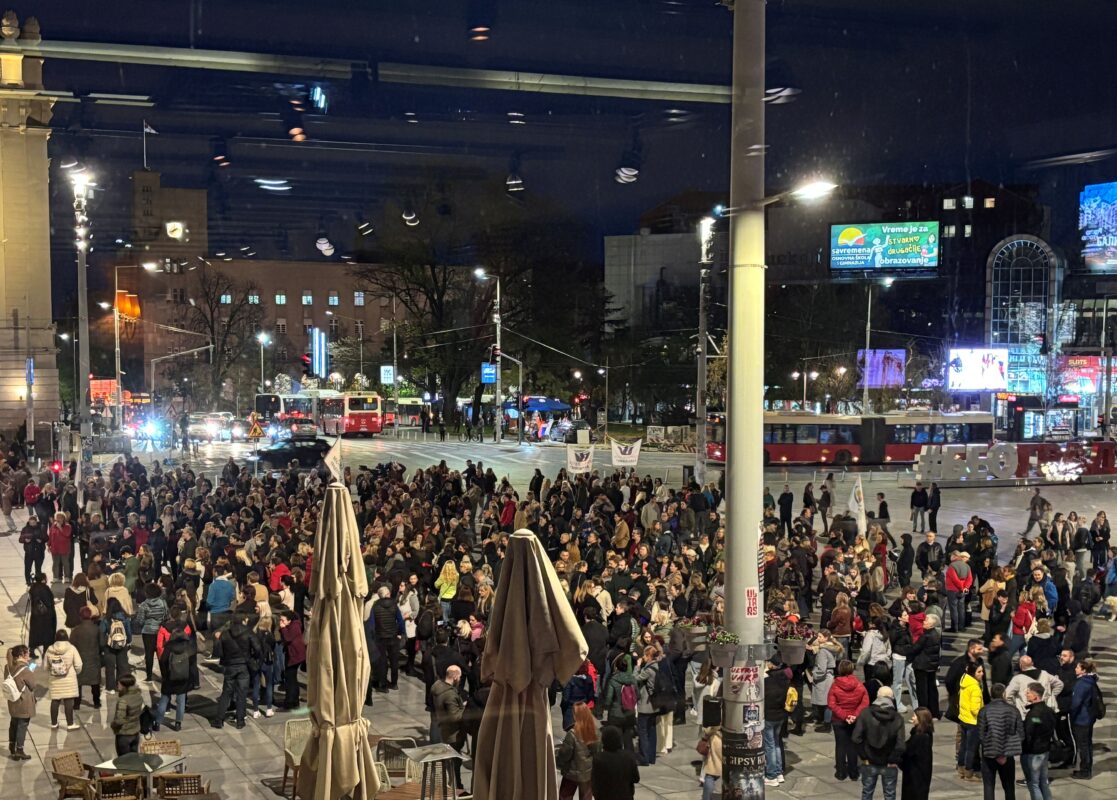The pandemic is followed by a heyday - m4music
The 26th edition of the m4music music festival was sold out and characterized by an upswing and creativity. In addition to sustainability, the main topics included artificial intelligence and its impact on the music scene.

Over 6,000 people attended m4music, the pop music festival organized by the Migros Culture Percentage, at the end of March 2024. According to festival director Philipp Schnyder, the Swiss music scene has shown that it is thriving again one year after the pandemic, presenting itself creatively and full of drive. "Despite some structural problems, professionalization is progressing," he says with conviction. This was also reflected in the discussions at the conference program, which was attended by around 1600 professionals. "There is a great will to make progress together on issues of diversity and awareness, sustainability and social justice, but also on economic issues."
The various panels discussed topics such as "Fair pay in the music scene" and "Tiktok as a career booster" and also took a look behind the scenes of funding institutions. Under the title "Festival Utopias", representatives of small music festivals from Switzerland reported on how they are responding to the ongoing climate crisis: While Facciamo la Corte, which takes place near Lugano, only engages musicians from Switzerland in order to minimize its ecological footprint, the three-day Buatsch Festival in Tersnaus, Graubünden, focuses on sustainable infrastructure and producing as little waste as possible.
The region as a target audience
"One of our aims is for our audience to feel connected to the venue and the people who live there," explained Eli Müller, who is part of the Buatsch organizing collective. "Our event primarily appeals to people from the surrounding valleys and the region."
"We see our festival first and foremost as a gift to the hamlet of Le Cerneux-Godat, on whose soil the event can take place," emphasized Loris Vettese, the artistic director of the Tartare de Miettes Festival in the Jura. It is characterized by the fact that the public can decide for themselves how much they want to pay for admission.
The Tartare de Miettes does not receive any sponsorship, but does receive 6,000 francs from the state, which corresponds to a tenth of the budget. "We live mainly from what our visitors are prepared to pay - including for drinks," adds Vettese. The structure works because no one except the technical staff receives a salary. "Which ultimately proves that we are all very privileged. Otherwise it wouldn't be possible for us to do so much voluntary work for the festival."
Propere music on SRF 3?
The panel "A love story: SRG and the Swiss music industry" lived up to its title: Gilles Marchand, Director General of SRG, and four of his program directors were initially full of self-praise. "The diversity of our program corresponds to the diversity of Swiss music," said Marchand, praising the work of his company. It became clear that not everyone shares his view when Chris Wicky, Co-CEO of the Swiss music agency Irascible, took to the stage. Although what SRG achieves is certainly impressive, the music played by SRF 3 seems decidedly harmless to him.
Michael Schuler, Head of Music at SRF, defended the programming and explained that the audience should not be irritated. "Otherwise they will quickly switch to streaming services like Spotify." Presenter Maria Victoria Haas pointed out that songs by Swiss musicians are mainly played at night on SRF 3. When asked why music by local artists is not played more often during the day, Schuler answered evasively: "We have improved a lot in this respect." Nevertheless, all those present agreed that SRG and Swiss music creators are dependent on each other. "I hope that we will work more closely together in future," concluded Schuler.
Apply AI
One of the hotly debated topics at m4music was artificial intelligence (AI) and its effects. In his keynote talk "Music and AI", German musician and label operator Florian Kreier (aka Angela Aux) focused not least on the question of how AI can be used by artists. "Anyone who uses a cell phone is already using AI," emphasized the 41-year-old, trying to allay his audience's fears of the new technology. In particular, he praised the benefits of software components such as stem separation tools, which use AI to isolate the individual instruments in a track so that they can be studied. Surprisingly, the new single by Angela Aux, Traveler of the MindBut it doesn't sound like science fiction at all, but rather like a catchy but harmless sound potpourri that draws on the pop of the seventies.








